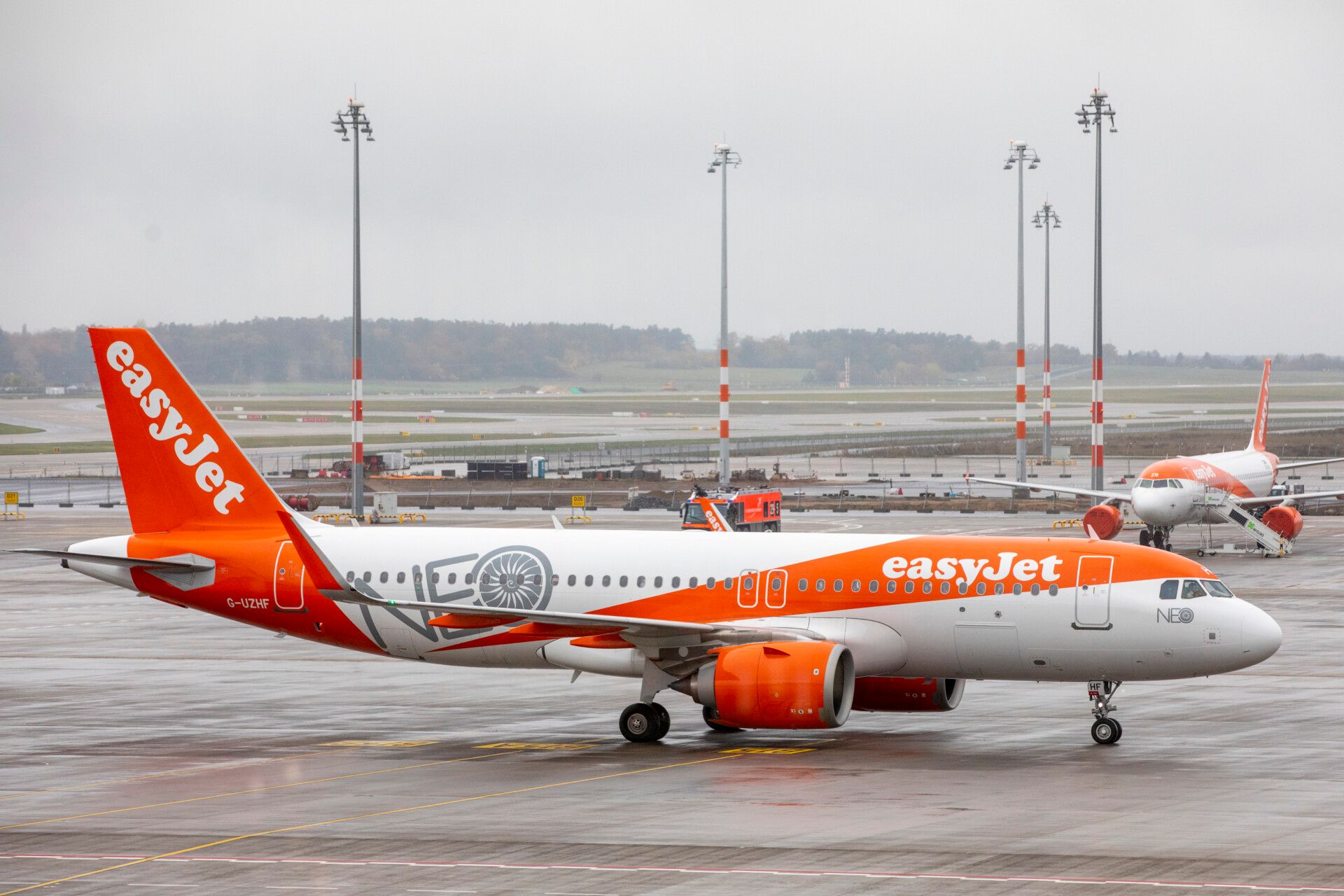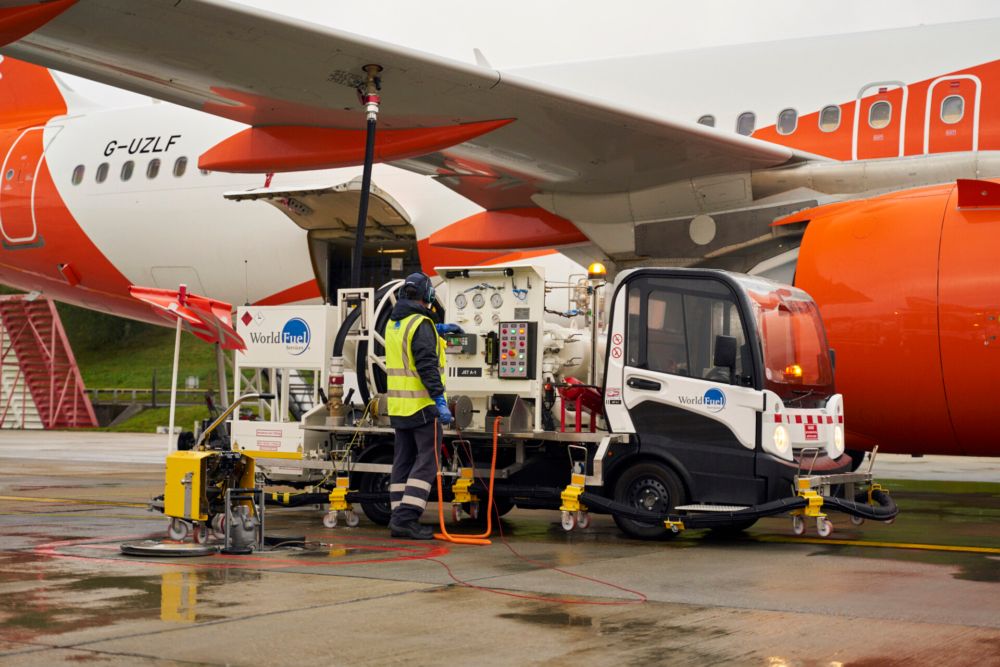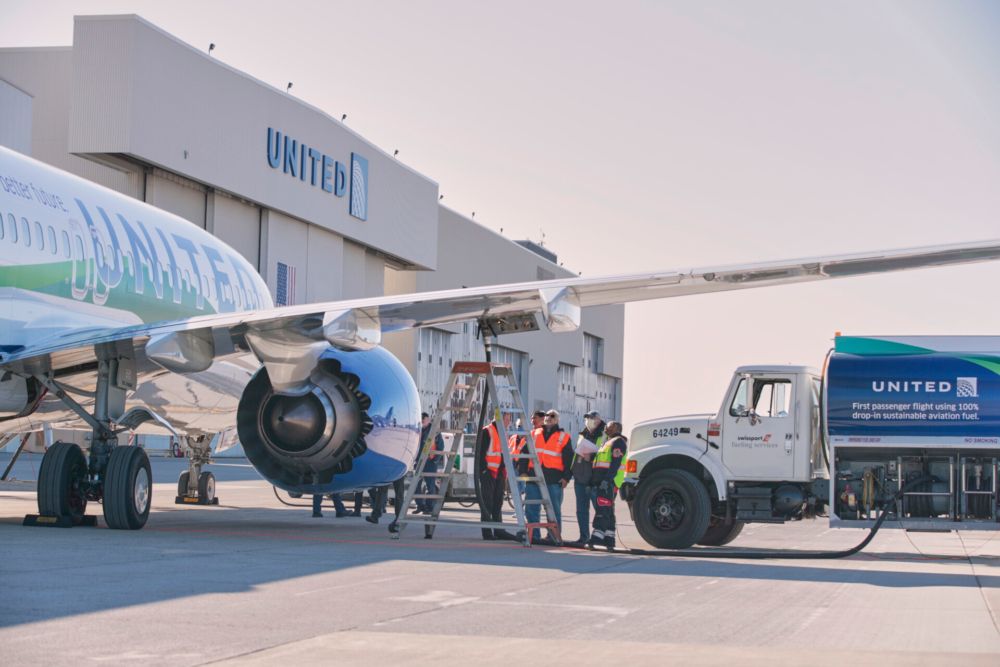There are many challenges on the road to scaled supply of sustainable aviation fuel. One of the main issues with increasing demand is the prohibitive costs when compared to conventional jet fuel. This will have to change in order for SAFs to become a significant alternative, particularly for low-cost carriers, easyJet's CCO Sophie Dekkers said during her keynote interview at the Future Flying Forum.
What needs to happen first, supply or demand?
Even when operators are willing to pay the hefty sustainable fuel premium, such as when Etihad wanted to fly on 50% SAF between London and Abu Dhabi, supply is not sufficient. The UAE national airline had to settle for just over 30% for its 'most sustainable flight yet'.
It is something of a chicken and egg situation. Airlines need to buy more SAF to incentivize increased production from refineries to scale supply and bring costs down. Meanwhile, airlines also say they will buy more SAF when prices go down.
For instance, budget carrier easyJet, the first European carrier to purchase carbon offsets for all its flights, says prices need to drop massively before SAF makes sense in the low-cost segment.
"SAF prices are five times higher than the price of conventional jet fuel based on the European spot prices. So we really need to grow the availability of SAF to be able to bring the cost down and make it a viable alternative - particularly if you're talking to low-cost carriers or airlines of our size, where fuel makes up a large proportion of our cost base," said Sophie Dekkers, Chief Commercial Officer for easyJet, when speaking to Simple Flying's Tom Boon.
Stay informed: Sign up for our daily and weekly aviation news digests.
Trialing SAF at Gatwick
However, this does not mean easyJet is not pulling its weight where sustainable fuels are concerned. The airline recently installed an electric hydrant SAF dispenser at Gatwick Airport.
As a result, easyJet's 42 flights operating out of the West Sussex airport are now powered to 30% by SAF. Dekkers mentioned in her interview that easyJet would look at the results of the program before deciding whether to roll out more widely across the network.
"We want to make sure that we're doing the right thing and looking at the role that SAFs can play going forward," she continued.
EU and US policy towards SAF
All over the world, the aviation industry is calling for government support and incentives to scale up the production of SAF. The European Union's ReFuelEU proposal includes a blending mandate imposed on aviation fuel suppliers. This will start at 2% in 2025. It will then increase with five-year intervals to reach a minimum of 63% in 2050 - 28% of which need to consist of synthetic fuels.
Meanwhile, the US introduced the Sustainable Skies Act in May this year. The credit will start at $1.50 per gallon for blenders that can prove a 50% or greater lifecycle greenhouses gas emission reduction compared to conventional kerosene fuel.
In early September, the Biden administration also proposed new measures to increase SAF production to at least three billion gallons per year by 2030. These include a tax credit, continuous funding opportunities, and global cooperation with international partners.



